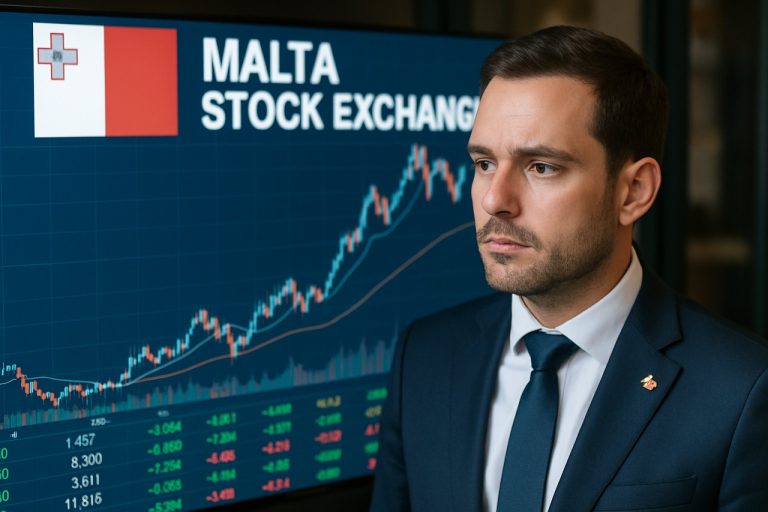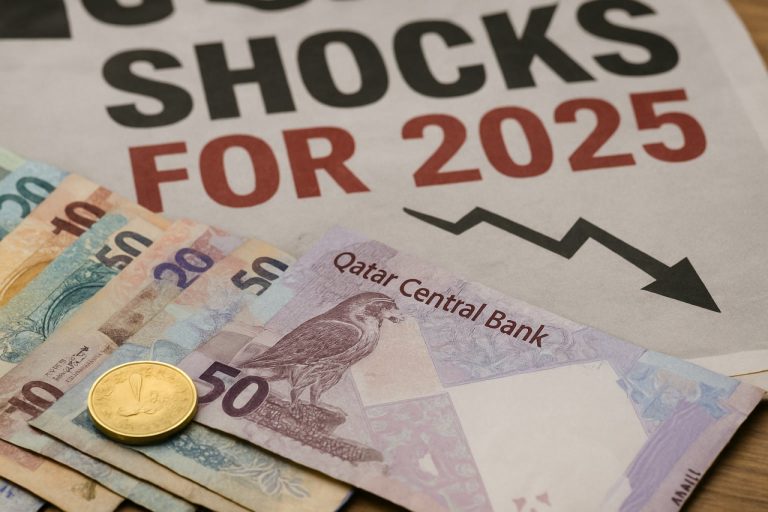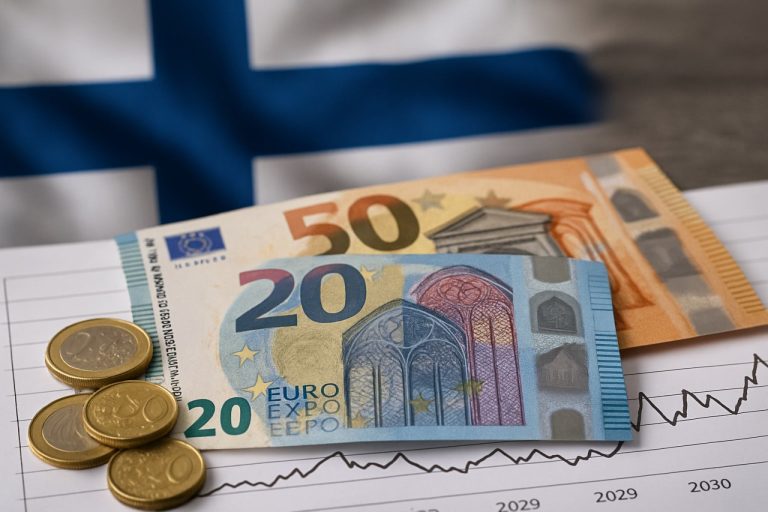
Table of Contents
- Liechtenstein at a Glance: Economic and Investment Overview
- Legal Framework and Investor Protection: What You Need to Know
- Taxation in Liechtenstein: 2025 Updates and Strategic Advantages
- Banking, Fintech, and Asset Management: Opportunities and Gateways
- Key Sectors: Where Growth Is Accelerating Through 2030
- Foreign Direct Investment (FDI): Policies, Incentives, and Trends
- Compliance, Due Diligence, and Regulatory Obligations (Source: llv.li)
- Risks and Challenges: Navigating Stability, Transparency, and Reputation
- Case Studies: Recent Success Stories and Noteworthy Investments
- Future Outlook: Projections and Strategic Moves for Investors (2025–2030)
- Sources & References
Liechtenstein at a Glance: Economic and Investment Overview
Liechtenstein, a constitutional monarchy nestled between Switzerland and Austria, has cultivated a robust and stable economic environment that appeals to international investors. As of 2025, the country maintains one of the highest GDP per capita figures globally and demonstrates resilience through economic diversification, prudent fiscal policy, and close integration with the European Economic Area (EEA) and Swiss markets. The financial services sector, advanced manufacturing (notably precision instruments), and high-value-added industries are key drivers of its economic profile.
Liechtenstein’s legal and regulatory environment is meticulously aligned with international standards, providing a transparent and predictable framework for investors. The country is a member of the EEA, granting firms unrestricted access to the European Single Market while using the Swiss franc (CHF) as its official currency. Recent years have seen Liechtenstein strengthen its anti-money laundering (AML) and counter-terrorism financing (CTF) measures, in line with recommendations from the Government of the Principality of Liechtenstein and international bodies. Notably, 2024 reforms to the Due Diligence Act and Ordinance have expanded obligations for financial intermediaries, reinforcing the jurisdiction’s commitment to financial integrity (Financial Market Authority Liechtenstein).
Company formation is streamlined, with structures such as Aktiengesellschaft (AG) and Gesellschaft mit beschränkter Haftung (GmbH) popular for both domestic and international activities. The minimum share capital for an AG is CHF 50,000, while a GmbH requires CHF 30,000. Liechtenstein’s corporate income tax stands at 12.5%, complemented by a flexible foundation and trust law regime that continues to attract private wealth and family office structures (Liechtenstein Office of Justice).
- GDP per capita (2023): Estimated at over CHF 160,000.
- Unemployment rate: Remains below 3%.
- Financial sector assets: Over CHF 300 billion under management.
- Foreign direct investment (FDI): Steady inflows, with a focus on financial services, advanced technologies, and sustainable innovation.
Looking ahead to 2025 and beyond, Liechtenstein’s investment outlook is positive. The government is prioritizing digital transformation and sustainable finance, supported by ongoing regulatory modernization and incentives for green and fintech sectors (Government of the Principality of Liechtenstein). Political stability, a pro-business legal framework, and strategic access to European markets position Liechtenstein as a compelling destination for investors seeking security, innovation, and long-term growth.
Legal Framework and Investor Protection: What You Need to Know
Liechtenstein’s legal framework for investors is built on a robust set of laws and regulations, closely aligned with European and international standards. As a member of the European Economic Area (EEA), the country implements much of the EU’s financial market legislation, ensuring a high level of investor protection, transparency, and compliance.
Key statutes governing investment and business activities include the Persons and Companies Act (PGR), which defines the rules for establishing and managing companies; the Liechtenstein Banking Act, which regulates banking operations; and the Due Diligence Act, focused on anti-money laundering (AML) and combating terrorist financing. In 2024, amendments to the PGR and Banking Act further harmonized local regulations with the EU’s updated Markets in Financial Instruments Directive (MiFID II) and the Anti-Money Laundering Directive, enhancing compliance obligations for financial intermediaries and asset managers.
The Financial Market Authority Liechtenstein (FMA) serves as the main supervisory body for the financial sector, overseeing banks, investment firms, insurers, and pension funds. The FMA enforces strict licensing requirements, continuous monitoring, and regular reporting for all market participants. Recent statistics show that, as of 2023, financial services accounted for over 24% of Liechtenstein’s GDP, underlining the sector’s significance and regulatory scrutiny (Office of Statistics Liechtenstein).
Investor protection mechanisms include the Deposit Guarantee and Investor Compensation Foundation, which safeguards client funds up to CHF 100,000 per depositor and offers compensation for investment losses in the event of institutional insolvency (Deposit Guarantee and Investor Compensation Foundation PCC). Additionally, the FMA provides dispute resolution services and enforces conduct of business rules to minimize conflicts of interest and ensure fair treatment of clients.
Looking ahead to 2025 and beyond, Liechtenstein’s regulatory agenda emphasizes digital transformation and ESG (environmental, social, governance) compliance. The government is implementing the EU’s Digital Finance Package and the Markets in Crypto-Assets Regulation (MiCA), providing clear legal certainty for digital asset investments. At the same time, sustainability reporting requirements are becoming more stringent, with new rules for disclosure and risk management in sustainable finance.
Overall, Liechtenstein’s legal and regulatory framework offers investors a stable, transparent, and EU-aligned environment. Ongoing reforms and proactive supervision by the FMA are set to maintain high standards of investor protection and compliance in the years ahead.
Taxation in Liechtenstein: 2025 Updates and Strategic Advantages
Liechtenstein’s taxation framework has long been a cornerstone of its appeal to international investors, thanks to its stability, transparency, and competitive rates. As of 2025, the country continues to refine its tax system to align with international standards while preserving its attractiveness for cross-border investments and wealth management.
Corporate income tax remains notably low, with a flat rate of 12.5% applicable to companies, including foundations and trusts. There are no local income taxes or capital gains tax for corporations, further enhancing Liechtenstein’s status as a preferred jurisdiction for holding companies and private wealth structures. These provisions are set out in the current Tax Act (Steuergesetz) administered by the Liechtenstein Tax Administration.
In response to the EU and OECD’s ongoing initiatives for tax transparency and anti-avoidance, Liechtenstein has implemented robust compliance measures. The country adheres to the Common Reporting Standard (CRS) and Automatic Exchange of Information (AEOI), sharing financial account information with partner jurisdictions. Amendments to the Tax Act, effective 2025, reinforce anti-abuse provisions, particularly concerning substance requirements and economic presence for legal entities—ensuring alignment with the OECD BEPS framework and EU criteria for cooperative jurisdictions.
For individuals, Liechtenstein levies personal income tax on a progressive scale; however, there is no wealth, inheritance, or gift tax. This, combined with the absence of capital gains tax for individuals on private asset sales, presents significant strategic advantages for private investors and high-net-worth individuals seeking efficient wealth structuring.
Liechtenstein’s double taxation treaty network continues to expand, with agreements concluded or in negotiation with several European and non-European countries. This reduces withholding tax exposure and facilitates cross-border investments, as documented by the Liechtenstein Tax Administration.
Key statistics underline the country’s success: as of the latest reporting period, Liechtenstein boasts one of the highest GDP per capita globally and a robust inflow of foreign direct investment—attributes closely linked to its favorable tax regime and legal certainty (Liechtenstein Government). Looking ahead, the outlook for 2025 and beyond remains positive, as Liechtenstein continues to balance innovation in financial services with international compliance, ensuring its position as a leading European investment destination.
Banking, Fintech, and Asset Management: Opportunities and Gateways
Liechtenstein, known for its robust financial sector, remains a prominent gateway for banking, fintech, and asset management investments in 2025. The principality’s strategic location between Switzerland and Austria, participation in the European Economic Area (EEA), and stable legal and political environment continue to attract global investors seeking both innovation and security.
- Banking Sector: Liechtenstein’s banking industry is characterized by conservative lending practices, high liquidity, and strong capital ratios. As of 2023, banks in Liechtenstein managed client assets exceeding CHF 370 billion, reflecting resilience even amid broader European market volatility (Financial Market Authority Liechtenstein). The sector’s regulatory framework aligns with EEA standards, ensuring high levels of investor protection and transparency.
- Fintech and Digital Assets: Liechtenstein is internationally recognized for its progressive Token and Trusted Technology Service Providers Act (TVTG, also known as the “Blockchain Act”), which came into force in 2020. This legal framework provides legal certainty for digital assets, cryptocurrencies, and blockchain-based business models, making Liechtenstein a leading European location for digital finance innovation (Government of the Principality of Liechtenstein). In 2024, the Financial Market Authority (FMA) reported a sustained increase in the number of registered TT (“Trustworthy Technology”) service providers, underlining growing fintech activity (Financial Market Authority Liechtenstein).
- Asset Management: Liechtenstein’s asset management sector benefits from passporting rights across the EEA, enabling market access for funds and service providers. As of late 2024, over 120 asset management companies were licensed, with regulatory oversight emphasizing anti-money laundering (AML) and investor protection. The Asset Management Act and the UCITS Act (for collective investment schemes) mirror EU directives and are strictly enforced by the FMA (Financial Market Authority Liechtenstein).
- Compliance and Recent Developments: In recent years, Liechtenstein has enhanced its AML framework to align with evolving EU standards and recommendations from the Financial Action Task Force (FATF). Ongoing digitalization initiatives in banking and asset management, including e-KYC and RegTech solutions, are making compliance more efficient and investor onboarding smoother (Government of the Principality of Liechtenstein).
- Outlook: Looking ahead to 2025 and beyond, Liechtenstein is expected to maintain its competitive edge in private banking, fintech, and asset management. Targeted government initiatives to promote sustainable finance and digital transformation are likely to further diversify opportunities for international investors (Government of the Principality of Liechtenstein).
In summary, Liechtenstein’s blend of regulatory certainty, forward-looking digital asset legislation, and continued market innovation positions it as a compelling destination for investors in banking, fintech, and asset management sectors through 2025 and the coming years.
Key Sectors: Where Growth Is Accelerating Through 2030
Liechtenstein, though geographically small, is strategically situated between Switzerland and Austria and has developed a robust, diversified economy with a particular focus on high-value sectors. As of 2025, the principality continues to show strong growth prospects in several key sectors, supported by favorable legal frameworks, a stable political environment, and close integration with the European Economic Area (EEA).
- Financial Services: Liechtenstein’s banking and financial services sector remains its economic backbone, accounting for approximately 25% of GDP. The sector is characterized by high levels of capitalization, liquidity, and a strong regulatory environment. Ongoing reforms, such as the implementation of the revised EU Anti-Money Laundering Directive and digital asset regulations, have strengthened compliance and transparency, making Liechtenstein an attractive jurisdiction for private banking, wealth management, and fintech investment. The Financial Market Authority Liechtenstein continues to oversee a robust compliance framework, with new licenses for digital asset service providers supporting sector innovation.
- Manufacturing and Industrial Technology: Advanced manufacturing, particularly in precision instruments, dental technology, and electronics, is a key growth driver. Around 40% of Liechtenstein’s workforce is employed in industry, with many firms exporting globally. The government’s focus on supporting research and development, as well as digital transformation initiatives, has fostered a competitive industrial base. The Office of Economic Affairs offers incentives for technology-oriented SMEs, ensuring ongoing sector modernization.
- Green Technologies and Sustainability: Environmental technologies are a priority in the national growth strategy. Liechtenstein’s commitment to climate targets and the EEA’s Green Deal is accelerating investment in renewable energy, sustainable construction, and circular economy projects. The Office for the Environment is actively promoting regulatory frameworks and incentives for green investments, with particular focus on energy efficiency in industry and housing.
- Digital Economy and Innovation: With the enactment of the innovative “Token and TT Service Providers Act” (TVTG), Liechtenstein has positioned itself as a European leader in blockchain regulation. This legal certainty is driving growth in tokenization, digital securities, and fintech startups. The Ministry for Infrastructure and Economic Affairs is supporting digital transformation across sectors, aiming to attract both regional and international tech investment.
Looking ahead to 2030, Liechtenstein’s stable legal environment, close EEA ties, and strategic sectoral focus will likely sustain its position as a prime destination for cross-border investment. The principality’s proactive adaptation to EU regulations, coupled with its tradition of economic openness, underpins a broadly positive investment outlook.
Foreign Direct Investment (FDI): Policies, Incentives, and Trends
Liechtenstein, a microstate nestled between Switzerland and Austria, has long positioned itself as a stable and attractive destination for foreign direct investment (FDI). Despite its small geographic and demographic size, the principality’s economic integration with Switzerland, membership in the European Economic Area (EEA), and robust legal framework underpin its investment appeal.
FDI Policies and Legal Framework
Liechtenstein upholds a liberal investment regime, welcoming foreign investors across most sectors. The Law on Profit Tax and Persons and Companies Act (PGR) provide the legal foundation for business operations and corporate structuring. Foreign ownership is permitted without significant restrictions, except in a few sensitive sectors like real estate (where residency may be required for acquisition) and certain financial activities, which are closely monitored by the Financial Market Authority Liechtenstein (FMA).
Liechtenstein’s FDI screening mechanisms are aligned with EEA standards, focusing mainly on anti-money laundering, national security, and competition policy. As of 2025, the government continues to enhance compliance with European directives on transparency and beneficial ownership, with updated regulations reflecting the latest EU Anti-Money Laundering Directives (Liechtensteinische Regierung).
Incentives for Foreign Investors
Liechtenstein offers a competitive corporate tax rate of 12.5%, among the lowest in Europe. There are no withholding taxes on dividends, interest, or royalties, and the country maintains a wide network of double taxation treaties, further reducing fiscal barriers for international investors. The government also supports R&D and innovation through targeted grants and participation in EEA research frameworks (Liechtenstein Tax Administration).
Key Statistics and Trends
FDI inflows to Liechtenstein remain robust, with the latest data indicating foreign-controlled enterprises generate over half of the country’s total value-added (Amt für Statistik Liechtenstein). Key sectors attracting FDI include finance, manufacturing (notably precision instruments and electronics), and professional services. The number of registered companies per capita is among Europe’s highest, reflecting Liechtenstein’s ongoing role as a preferred domicile for holding and operating companies.
Outlook for 2025 and Beyond
Looking ahead, Liechtenstein is expected to maintain its attractiveness for FDI, driven by political stability, strong regulatory standards, and deep economic integration with the EU and Switzerland. Key challenges will include adapting to evolving international tax standards (such as OECD’s global minimum tax) and maintaining high compliance in financial services. However, the principality’s commitment to legal certainty, investor protection, and innovation-oriented policies bodes well for sustained investment inflows in the medium term (Financial Market Authority Liechtenstein).
Compliance, Due Diligence, and Regulatory Obligations (Source: llv.li)
Investing in Liechtenstein in 2025 necessitates a robust approach to compliance, due diligence, and adherence to evolving regulatory obligations. The Principality’s legal and regulatory framework is characterized by stability, transparency, and alignment with European and international standards, making it attractive for foreign investors but also imposing strict requirements.
Liechtenstein’s financial sector is supervised by the Financial Market Authority Liechtenstein (FMA), which enforces the compliance standards for banks, investment firms, fund managers, and insurance entities. The Liechtenstein Government has implemented comprehensive anti-money laundering (AML) and counter-terrorism financing (CTF) regulations, in line with the EU’s AML directives and recommendations from the Financial Action Task Force (FATF).
- Due Diligence and KYC: Financial intermediaries must carry out extensive due diligence, including Know Your Customer (KYC) procedures, beneficial ownership verification, and continuous monitoring of business relationships. Enhanced due diligence applies for politically exposed persons (PEPs) and high-risk jurisdictions (Liechtenstein Government).
- Transparency and Reporting: Legal entities must register with the Liechtenstein Public Register, and beneficial ownership information must be maintained and made available to authorities. The FMA requires institutions to report suspicious activities and comply with the EU’s Common Reporting Standard (CRS) for tax transparency.
- Sanctions and Market Conduct: Firms must comply with EU and UN sanctions, as incorporated into Liechtenstein law. The FMA monitors market abuse, insider trading, and conduct-of-business rules, imposing significant penalties for non-compliance.
- Recent Developments: In 2024, Liechtenstein updated its AML Act (SPG) to further align with the EU’s sixth AML Directive, introducing stricter due diligence thresholds and increased supervisory powers for the FMA (Liechtenstein Government).
The compliance outlook for 2025 and beyond anticipates further digitalization of reporting systems, greater cross-border information exchange, and heightened scrutiny of digital assets and fintech investments. Investors should expect ongoing regulatory updates as Liechtenstein continues to cement its reputation as a transparent and well-regulated financial center in Europe.
Risks and Challenges: Navigating Stability, Transparency, and Reputation
Liechtenstein, renowned for its political stability and robust financial sector, presents an attractive destination for investors seeking a predictable environment. However, several risks and challenges persist, particularly in the realms of regulatory compliance, transparency, and reputational considerations, which must be carefully navigated by investors in 2025 and the coming years.
Regulatory and Compliance Landscape
- Liechtenstein is a member of the European Economic Area (EEA), which mandates alignment with key EU financial directives, such as MiFID II and the Fourth and Fifth Anti-Money Laundering Directives. As a result, investors face strict due diligence, reporting, and disclosure requirements, especially concerning anti-money laundering (AML) and counter-terrorist financing (CTF) compliance. The Financial Market Authority Liechtenstein (FMA) is the primary regulator overseeing these frameworks.
- Ongoing amendments to Liechtenstein’s Due Diligence Act and its implementation of the EU’s AML/CFT standards have heightened scrutiny on beneficial ownership transparency and cross-border transactions. Non-compliance can result in significant penalties and reputational risks for investors.
- In 2024, the FMA intensified its supervisory activities, focusing on digital assets and fintech innovation, which are growth areas but also carry regulatory uncertainty as the sector evolves and aligns with EU-wide standards (Financial Market Authority Liechtenstein).
Transparency and International Cooperation
- Liechtenstein has made substantial progress in improving tax transparency and international cooperation. The country is a signatory to the OECD’s Common Reporting Standard (CRS) and the Automatic Exchange of Information (AEOI) framework, ensuring that tax authorities in investors’ home countries are notified of their holdings in Liechtenstein (Office for International Financial Affairs).
- Though these measures have improved Liechtenstein’s reputation, they also reduce the privacy once associated with its banking system, requiring investors to adopt robust compliance practices.
Reputation and Market Outlook
- Liechtenstein’s financial sector remains under ongoing international observation. In 2025, the country is expected to undergo further evaluations by the Financial Action Task Force (FATF) and the EU regarding its AML/CFT regime, which could impact investor sentiment depending on the outcome (Financial Market Authority Liechtenstein).
- Key statistics from the FMA indicate that assets under management in Liechtenstein’s financial sector reached CHF 400 billion in 2023, emphasizing its importance as a global financial hub. However, the sector’s exposure to global regulatory trends and reputational risks means that future growth is contingent on continued compliance and adaptability.
Outlook
While Liechtenstein offers political stability and sophisticated financial infrastructure, investors must remain vigilant regarding evolving compliance requirements, increased transparency, and reputational risks. Proactive engagement with regulatory changes and best practices will be essential for successfully navigating the Liechtenstein investment landscape in 2025 and beyond.
Case Studies: Recent Success Stories and Noteworthy Investments
Liechtenstein’s status as a center for international finance and innovation has attracted a range of noteworthy investments and success stories in recent years, reflecting the principality’s favorable regulatory environment and economic resilience. In 2023 and 2024, several case studies illustrate the country’s appeal to both established multinational corporations and cutting-edge startups.
- Fintech Expansion: Liechtenstein’s proactive stance on blockchain and digital assets has positioned it as a magnet for fintech firms. The implementation of the Token and Trusted Technology Service Providers Act (TVTG) by the Financial Market Authority Liechtenstein (FMA) continues to attract digital asset service providers. In 2024, multiple fintech companies, including Bitpanda and LCX, expanded their operations in Liechtenstein, citing the clear legal framework and robust compliance requirements. This regulatory clarity has enabled these businesses to serve clients across the European Economic Area while maintaining high standards of anti-money laundering compliance.
- Industrial Investment: The manufacturing sector, particularly high-precision engineering and medical technology, has seen targeted investments. Hilti AG, a global leader in construction technology, continued to expand its research and development facilities in Schaan, supported by the principality’s pro-innovation policies and skilled workforce. According to Liechtenstein’s Office of Economic Affairs, the sector benefitted from over CHF 100 million in capital investments between 2022 and 2024, fostering job creation and export growth.
- Sustainable Finance Success: Liechtenstein’s commitment to sustainability has been a draw for green investment funds and ESG-driven ventures. The country’s adoption of the European Union’s Sustainable Finance Disclosure Regulation (SFDR) and the establishment of the Liechtenstein Initiative for Sustainable Finance have facilitated the launch of several impact investment funds. In 2024, a major pan-European green fund chose Vaduz as its management hub, citing strong regulatory support for ESG transparency and reporting.
Looking forward, Liechtenstein’s combination of legal certainty, advanced compliance infrastructure, and integration with European markets is expected to sustain its attractiveness for international investors through 2025 and beyond. The government’s ongoing commitment to digital finance, innovation, and sustainable economic growth signals continued opportunities for both traditional and alternative asset investors.
Future Outlook: Projections and Strategic Moves for Investors (2025–2030)
Looking ahead to 2025 and beyond, Liechtenstein is poised to maintain its reputation as a stable and innovative investment destination within Europe. The principality’s strong financial sector—anchored by robust banking, asset management, and insurance industries—remains underpinned by a prudent regulatory framework harmonized with both European and international standards. The ongoing implementation of the Financial Market Authority Liechtenstein’s (FMA) strategic plan for 2023–2027 is set to further reinforce regulatory effectiveness, with a focus on digitalization, sustainable finance, and advanced risk management measures (Financial Market Authority Liechtenstein).
- Regulatory Developments: In 2024, Liechtenstein continued to align its legal framework with EU directives, particularly in anti-money laundering (AML), digital assets, and sustainable finance. The Liechtenstein Blockchain Act (TVTG), which established clear legal definitions for tokenized assets and trusted technology service providers, is expected to attract further investment in fintech and digital assets through 2030 (Government of the Principality of Liechtenstein).
- Statistical Outlook: The financial sector accounted for approximately 25% of Liechtenstein’s GDP in 2023, with assets under management exceeding CHF 400 billion. The unemployment rate remains among the lowest in Europe, at below 2%. Projections from official sources suggest steady GDP growth of 1.5%–2.0% annually through 2030, driven by finance, advanced manufacturing, and digital services (Office of Statistics Liechtenstein).
- Compliance and Investor Protection: The FMA continues to strengthen supervisory practices, reflecting EU-compliant standards for investor protection, transparency, and risk-based supervision. In 2025–2030, enhanced due diligence requirements, sustainability disclosures, and digital onboarding for financial services will further support investor confidence (Financial Market Authority Liechtenstein).
- Strategic Opportunities: Key investment themes include green finance, digital assets, and cross-border wealth management. Liechtenstein’s EEA membership ensures continued access to the European single market, while its progressive legal environment and favorable tax regime position it as a hub for family offices, private equity, and fintech innovation (Government of the Principality of Liechtenstein).
In summary, investors can expect Liechtenstein to offer a blend of regulatory certainty, financial innovation, and macroeconomic resilience through 2030. Strategic moves should focus on sustainable and digital sectors, leveraging the principality’s forward-looking legal and compliance infrastructure.



